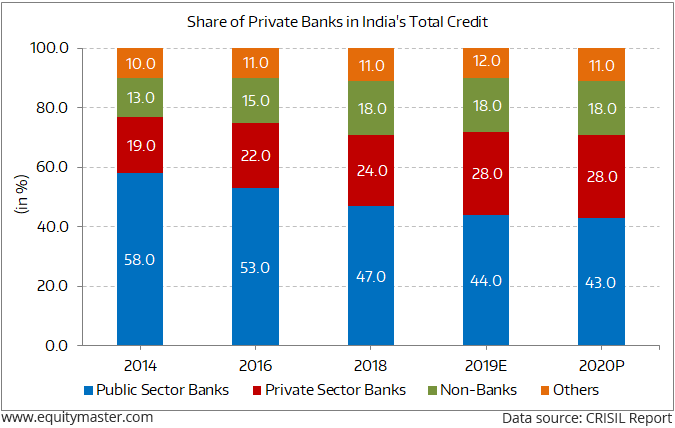India's Third Giant Leap
This Could be One of the Biggest Opportunities for Investors
- Home
- Todays Market
- Indian Stock Market News August 27, 2019
Sensex Opens Over 170 Points Higher; Capital Goods and Banking Stocks Rally Tue, 27 Aug 09:30 am
Asian share markets are higher today as Japanese and Hong Kong shares show gains. The Nikkei 225 is up 1.2% while the Hang Seng is up 0.2%. The Shanghai Composite is trading up by 1.8%. US stocks rose on Monday, following a sharp sell-off in the prior session, after US President Donald Trump predicted a trade deal with China, cooling investor concerns after a ramp-up in rhetoric derailed markets last week.
Back home, India share markets opened higher on the back of the announcement that the RBI will transfer surplus to government. The BSE Sensex is trading up by 175 points while the NSE Nifty is trading up by 61 points. The BSE Mid Cap index and BSE Small Cap index opened up by 0.8% and 0.7% respectively.
Except IT stocks, all sectoral indices have opened the day on a positive note with bank stocks, capital goods, metal and automobiles stocks witnessing buying interest.
The rupee is currently trading at 71.81 against the US$.
The rupee on Tuesday opened 32 paise higher at 71.70 against the US dollar.
The domestic unit on Monday declined by 36 paise to close below the 72 level for the first time in nine months, hit by a 'flash crash' in global currencies due to uncertainty over the trade front.
The currency settled at 72.02 to the US dollar, the lowest closing level since 14 November 2018, even as equities spurted more than 700 points at close on stimulus measures.
Foreign investors remained net sellers in the equity market offloading stocks worth Rs 7.5 billion on a net basis on Monday.
Speaking of currencies, Vijay Bhambwani, editor of Weekly Cash Alerts, tells you the main reasons why not to trade commodities and currencies the same way you would trade equities. Here's an excerpt of what he wrote...
- Currencies are traded in pairs and the most liquid is the USDINR. Currencies are traded in four decimal points just as bonds are. The international derivative trader's association has indicated that forex may be traded in 6 decimals in the coming few years.
It takes months sometimes for the currency pair to pass the next round figure, say from 70 to 71.
Can you really trade commodities and currencies alike or for that matter, equities and currencies alike? Definitely not!
To know more, you can read Vijay's entire article here: Is Trading in Equities, Commodities, and Currencies the Same?
Moving on to the news from the banking sector. The Reserve Bank of India (RBI) will transfer a surplus of Rs 1.8 trillion to the government as it has approved the recommendations of Bimal Jalan committee at the central board meet held in Mumbai on August 26.
The transfer sum comprises of Rs 1.2 trillion of surplus for the financial year 2019 and Rs 526.4 billion of excess provisions identified under the revised Economic Capital Framework (ECF) that was adopted at the central board meet.
Reportedly, the Central Board accepted all the recommendations of the Committee and finalised the RBI's accounts for 2018-19 using the revised framework to determine risk provisioning and surplus transfer.
The Central Board decided to maintain the realized equity level at 5.5% of the balance sheet as recommended by the committee, down from existing 6.8%. The resultant excess risk provisions of Rs 526.4 billion were written back, RBI said.
In conversation with me, co-head of research, Tanushree Banerjee had said that she is positive if this transfer is measured and goal oriented.
As per her, it could be a catalyst for the economy's turnaround. Tune in to find out the impact of surplus transfer by RBI on the economy.
Speaking of banking sector, Public sector banks have struggled due to rising NPAs.
NBFCs have struggled after the IL&FS crisis and are wary to lend.
There has been a silver lining in this mess. i.e. the increased market share of private sector banks.
India's Credit Shift Megatrend
Since 2014, private banks have consistently gained market share mainly at the expense of PSU banks.
With PSU banks still struggling to get out of their NPA mess, this trend is set to continue.
One such good quality private bank makes it to Tanushree's top 7 stocks to buy list.
These 7 stocks will be a part of many such megatrends that will play out over the next decade in India.
To know what's moving the Indian stock markets today, check out the most recent share market updates here.
For information on how to pick stocks that have the potential to deliver big returns, download our special report now!
Read the latest Market Commentary



Equitymaster requests your view! Post a comment on "Sensex Opens Over 170 Points Higher; Capital Goods and Banking Stocks Rally". Click here!
Comments are moderated by Equitymaster, in accordance with the Terms of Use, and may not appear
on this article until they have been reviewed and deemed appropriate for posting.
In the meantime, you may want to share this article with your friends!